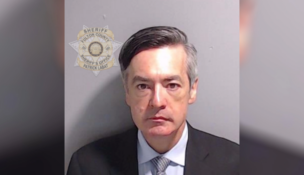Missed opportunity: Why Wisconsin’s new decanting statute falls short
By: Sumeeta Krishnaney and Eido Walny//April 29, 2014//
Missed opportunity: Why Wisconsin’s new decanting statute falls short
By: Sumeeta Krishnaney and Eido Walny//April 29, 2014//
 The new Wisconsin Trust Code, which takes effect July 1, will generally apply to existing revocable and future irrevocable trusts.
The new Wisconsin Trust Code, which takes effect July 1, will generally apply to existing revocable and future irrevocable trusts.
The code contains a decanting provision which allows a trustee to transfer the assets of an irrevocable trust to a new or separately existing irrevocable trust. Ostensibly, the ability to decant will reduce the costs and complexity of modifying the terms of an existing irrevocable trust in an effort to address drafting errors and unanticipated circumstances, both in the law and in the lives of trust beneficiaries. Decanting has proven to be a powerful tool for estate planners in several other states.
Unfortunately for Wisconsin, the decanting provision of the new WTC, codified in Section 701.0418, is too rigid and burdensome to be effective.
The stringent requirements entailed are more demanding than many states that offer the ability to decant irrevocable trusts. As a result, the imagined benefits to offering decanting will not materialize in Wisconsin.
When viewed in the context of the national competition for trust business, the decanting provision amounts to a missed opportunity for Wisconsin to empower our citizens and capture a piece of a growing segment of the financial market.
Significant concerns arise from an analysis of the WTC’s decanting provision:
1. Principal invasion power
An absolute principal invasion right is required for certain modifications. For example, the beneficiaries must remain the same unless the trustee has an absolute principal invasion right, which would allow the second trust to have some or all of the original beneficiaries.
Further, a power of appointment only may be granted under the second trust if the trustee has an absolute principal and income invasion power in the first trust. Demanding an absolute right to invade the principal for these modifications sets a very high standard not often seen in trust drafting.
A severe requirement limits the potential to decant trusts where the trustee does not have such extensive authority, ultimately undermining the efficacy of the decanting provision.
2. Nonliberalization of distributions
The second trust may not liberalize an ascertainable standard limiting the power to invade the principal if it is contained in the original trust, such as in a typical trust for health, education, maintenance and support.
Specifically, assets from a support trust cannot be decanted into a trust that is fully discretionary. This restriction comes at a time when planners are finally realizing the flexibility and asset protection strength of fully discretionary trusts.
Such a restriction challenges the fundamental purpose of allowing assets to move to a trust with terms that better meet the needs of the beneficiaries.
3. Restrictions on changes
The second trust must have terms that would meet the same qualifications for a marital or charitable deduction found in the original trust.
Additionally, a trustee who has a beneficial interest in the original trust may not decant assets into a second trust unless it is for a beneficiary with a disability. Currently exercisable withdrawal rights of a beneficiary in the original trust may not be lessened in the second trust, and the decanting cannot violate the Rule Against Perpetuities, interfere with a trustee’s power of alienation or impair the essential purpose of a trust for an individual with a disability. Nevada, for example, has no such restrictions.
In Wisconsin, the potential to remedy drafting or situational problems through decanting is diminished by such limitations.
4. Privacy disclosures
One of the main benefits integral to irrevocable trusts is the privacy they afford. Under the new WTC, a trustee seeking to decant assets into a new trust is required to give notice to the settlor (if living), trust protectors, directing parties and qualified beneficiaries.
Notice includes a writing explaining the appointment, the proposed effective date and copies of the existing trust as well as the new trust. Court approval is not required to move assets to a second trust. However, if the trustee seeks court approval, he must file a petition with the court as well as with all parties who would otherwise receive notice. The same information required for notice must be included in the petition.
These forced revelations eliminate the privacy benefits inherent in trusts. Typically, beneficiaries are not privy to the distributions of other beneficiaries. Following the new provision, the settlor’s intentions would be revealed to all qualified beneficiaries, destroying any previously constructed confidentiality.
5. Court approval requirements
Court approval is required to decant assets into a new trust if a beneficiary objects to a proposed change subsequent to receiving notice. This constraint increases costs and reduces the trustee’s flexibility, challenging the fundamental idea that the ability to decant should simplify a difficult process as well as decrease costs.
Presumably, this requirement is an effort to protect the interests of beneficiaries. However, those concerns are addressed by limits already provided in the statute. Beneficiary protections previously available, such as the ability to take action against a trustee, are still in place.
By requiring court approval in the event of an objection, the new WTC merely brings the trustee back to the same point, but in a convoluted and costly way.
The significance of decanting statutes cannot be overstated. The recent use and prevalence of such laws is a harbinger of the future of irrevocable trusts, with the ultimate result being that an irrevocable trust is now no longer truly permanent, and that a market for forum shopping has been created. The states with the most permissive statutes – Nevada and South Dakota among them – are the leaders in the competition to attract trust business, with the jurisdictions with no decanting provisions, or stringent and complicated laws, floundering.
Grantors, who can simply look elsewhere for a better solution, will not accept deficiencies in Wisconsin’s decanting statute. In cases where our laws do not suit their needs, affluent clients will engage in forum shopping, resulting in an exodus of assets from the state.
The harm is twofold: not only will Wisconsin lose trust business, but a tremendous opportunity to attract business to the state also has been missed.
Eido Walny is the founder of Walny Legal Group LLC, a boutique law firm focusing on estate planning, asset protection and business succession. Sumeeta Krishnaney is in attorney with Walny Legal Group. She concentrates her practice on wealth preservation strategies for individuals, professionals and small business owners.
Legal News
- Milwaukee’s Common Council now has the most African Americans, women and openly LGBTQ members ever
- Office of School Safety Provides Behavioral and Threat Assessment Management Training Ahead of 25th Anniversary of Columbine Shooting
- Wisconsin Supreme Court to hear arguments in Democratic governor’s suit against GOP-led Legislature
- Lawsuit asks Wisconsin Supreme Court to strike down governor’s 400-year veto
- Wisconsin man pleads not guilty to neglect in disappearance of boy
- ACS Selects University of Wisconsin Law School’s Miriam Seifter for 2024 Ruth Bader Ginsburg Scholar Award
- People with disabilities sue in Wisconsin over lack of electronic absentee ballots
- Wisconsin Republicans ignore governor’s call to spend $125M to combat ‘forever chemicals’
- Native American voices are finally factoring into energy projects
- Steven Avery prosecutor Ken Kratz admits ‘mistakes were made’
- Colombian national extradited to Milwaukee faces International narcotics-trafficking conspiracy charge
- MPD: Milwaukee homicides down nearly 40 percent compared to last year
WLJ People
- Power 30 Personal Injury Attorneys – Russell Nicolet
- Power 30 Personal Injury Attorneys – Benjamin Nicolet
- Power 30 Personal Injury Attorneys – Dustin T. Woehl
- Power 30 Personal Injury Attorneys – Katherine Metzger
- Power 30 Personal Injury Attorneys – Joseph Ryan
- Power 30 Personal Injury Attorneys – James M. Ryan
- Power 30 Personal Injury Attorneys – Dana Wachs
- Power 30 Personal Injury Attorneys – Mark L. Thomsen
- Power 30 Personal Injury Attorneys – Matthew Lein
- Power 30 Personal Injury Attorneys – Jeffrey A. Pitman
- Power 30 Personal Injury Attorneys – William Pemberton
- Power 30 Personal Injury Attorneys – Howard S. Sicula











